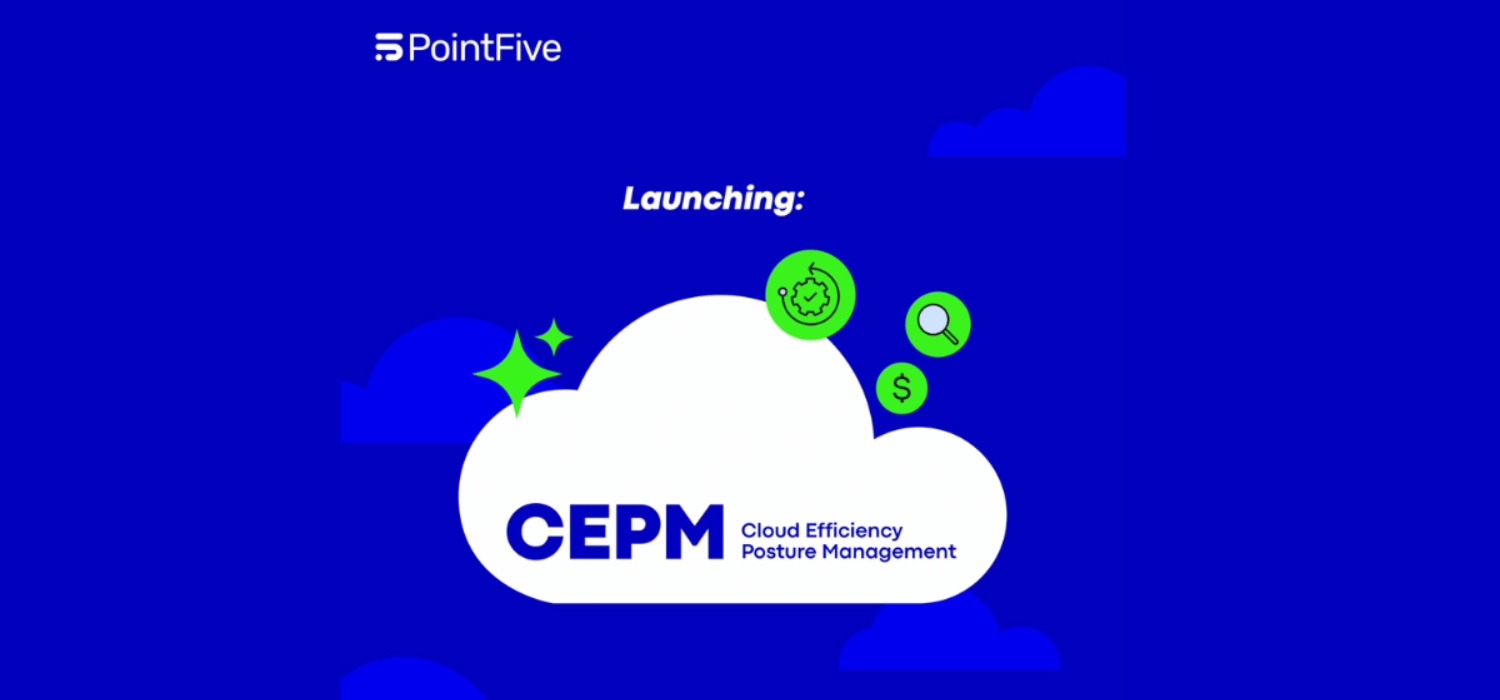
Managing costs has become a paramount concern for enterprises, particularly in the rapidly evolving landscape of cloud computing. Traditional tools often provide retrospective analyses, leaving organizations reacting to cost overruns rather than preventing them. Recognizing this gap, PointFive has introduced a whole new category, Cloud Efficiency Posture Management (CEPM), a solution poised to redefine cloud cost optimization.
The significance of this launch is underscored by PointFive’s recent $20 million Series A funding round, led by Salesforce Ventures, bringing its total funding to $36 million within just 18 months of inception. This rapid ascent not only highlights the industry’s confidence in PointFive’s innovative approach to cloud cost management but also reassures our clients and partners of our credibility and reliability.
Introducing Cloud Efficiency Posture Management (CEPM)
CEPM represents a paradigm shift from periodic assessments to real-time, continuous monitoring of cloud infrastructure. At its core is the DeepWaste™ Detection Engine, which leverages advanced AI and cyber intelligence methodologies to identify inefficiencies that often go unnoticed. This agentless, read-only solution scans various cloud services, including AWS, GCP, and Azure, to detect misconfigurations and resource wastage. By offering automated remediation pathways, CEPM empowers engineering teams to implement cost-saving measures seamlessly, without disrupting workflows.
Unlike traditional tools that offer periodic assessments, CEPM provides real-time, continuous insights into cloud infrastructure, enabling proactive cost management and optimization. This proactive approach ensures that potential issues are identified and addressed promptly, empowering you to stay in control of your cloud costs and reducing the risk of unexpected overruns.
The Significance of the Launch
The launch of CEPM is timely, addressing a critical need in the market. According to Flexera, 29% of respondents spend over $12 million a year on cloud, and 22% spend that much on SaaS. Lunavi also reports that 72% of respondents use more than one cloud provider, creating complexity in managing cost and performance across environments. PointFive’s platform identifies savings opportunities ranging from 15% to 30% of total cloud spend, translating to potential savings of millions for large organizations and offering a promising outlook for the financial benefits of using CEPM.
CEPM’s continuous monitoring and optimization capabilities mark a departure from reactive cost management strategies. By integrating cost efficiency into the core of engineering practices, PointFive enables organizations to allocate resources more effectively, fostering innovation and growth.
Industry Impact and Future Outlook
PointFive's approach has already attracted a roster of prominent clients, including Elastic, BHN, and Fanatics. The company's commitment to expanding multi-cloud support positions it to cater to a broader range of enterprises seeking comprehensive cost optimization solutions.
The recent funding will facilitate PointFive's expansion into new markets and the enhancement of its platform's capabilities. As cloud infrastructures become increasingly complex, the demand for continuous, intelligent cost management solutions, such as CEPM, is expected to grow.
Redefining Cloud Cost Management
PointFive's launch of Cloud Efficiency Posture Management signifies a paradigm shift in cloud cost optimization. By moving from periodic assessments to continuous, intelligent monitoring, CEPM empowers organizations to proactively manage expenditures, enhance efficiency, and drive innovation. As cloud adoption continues to rise, solutions like CEPM will play a crucial role in ensuring sustainable and strategic growth.
In an era where financial efficiency is crucial and downsizing is common, short-term optimizations often fall short. PointFive's CEPM offers a long-term strategy for resilience and adaptability, enabling organizations to move from reactive fixes to proactive optimization. This approach not only reduces costs but also fosters a culture of continuous improvement and innovation.
Written by TVC.